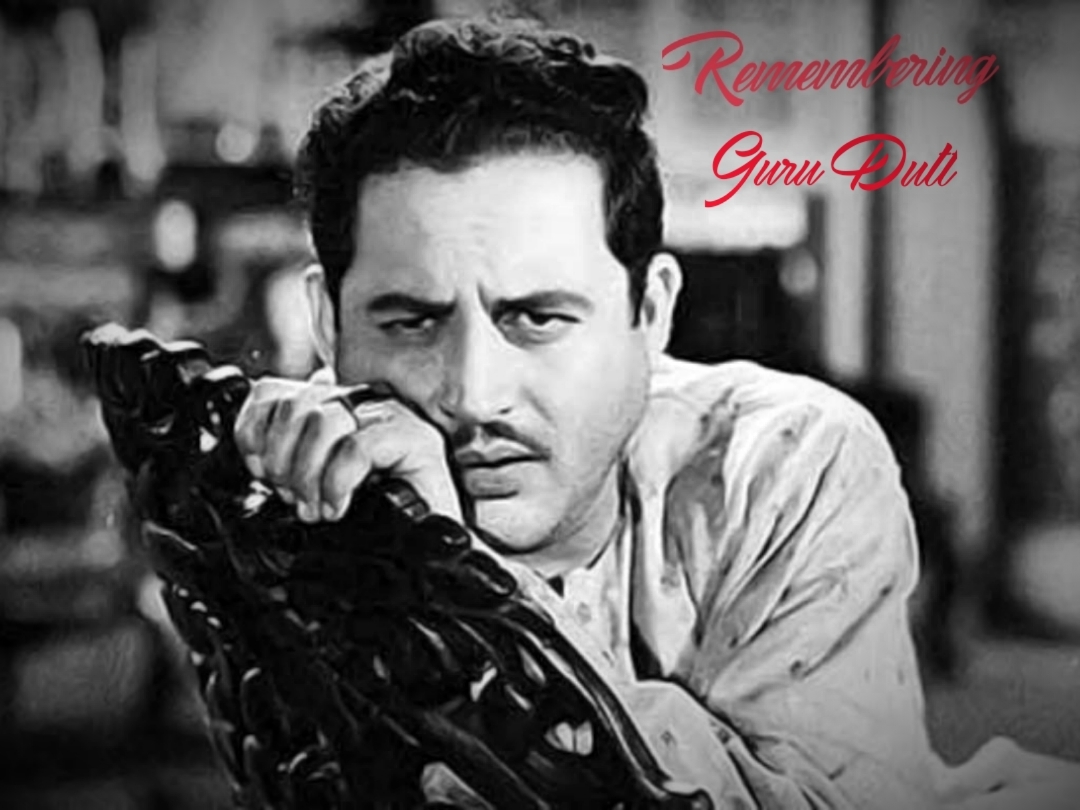- Sponsored -
Remembering Guru Dutt on his 93rd Birth Anniversary: The Master Craftsman

Considered to be a man ahead of his time, Guru Dutt was one of the greatest icons of commercial Indian cinema. Although he made less than fifty films, they are believed to be the best to come from Bollywood’s Golden Age, known both for their ability to reach out to the common man and for their artistic and lyrical content, and they went on to become trend-setters that have influenced Bollywood ever since. But for all his genius, there was a shroud of tragedy that overshadowed his career and life
- Sponsored -
Born on 9 July 1925, in Bangalore as named Vasanth Kumar Shivashankar Padukone, Guru Dutt was a Hindi motion-picture producer, director, writer, and actor, whose mastery of such elements as mood and lighting in a group of melodramas made him one of the best-known and most-accomplished stylists of Bollywood’s golden age.
Also Read: Deflected from issues, Modi govt took quantum jump in the wrong direction since 2014: Amartya Sen
Educated in Calcutta (now Kolkata), Dutt trained at Uday Shankar’s dance academy in Almora and then earned a living as a telephone operator. Later he shifted to Pune and joined the Prabhat Studio, where he served first as an actor and then as a choreographer. The first feature film he directed, Baazi (1951; “A Game of Chance”), was produced under the banner of actor Dev Anand’s Navketan International Films and featured Anand and Geeta Bali. The next year Dutt made another successful film, Jaal (1952; “The Net”), with the same stars. He then set up his own production house to make Baaz (1953; “The Hawk”). Although he worked in a variety of genres during his brief but brilliant career, melodrama was the style that best showcased his talents.
Dutt’s renown revolves primarily around three dark and brooding films: Pyaasa (1957; “The Thirsty One”), with Dutt as director and actor; Kaagaz ke phool (1959; “Paper Flowers”), again as director and actor; and Sahib bibi aur ghulam (1962; “Master, Wife, and Servant”), primarily as actor. Dutt also produced director Raj Khosla’s debut film C.I.D.
As a director, Dutt is known for his imaginative use of light and shade, his evocative imagery, and a striking ability to weave multiple thematic layers into his narratives. Those abilities, combined with a bewitching treatment of the songs that typify Bollywood, made him one of India’s most-accomplished filmmakers. In particular, Pyaasa and Kaagaz Ke Phool are now included among the greatest films of all time, both by Time magazine’s “All-TIME” 100 best movies and by the Sight & Sound critics’ and directors’ poll, where Dutt himself is included among the greatest film directors of all time. In 2010, he was included among CNN’s “top 25 Asian actors of all time”.
Several of his later works have a cult following. His movies go full house when re-released; especially in Germany, France and Japan. He was part of an exclusive school of Indian film directors, including the likes of Raj Kapoor, Mehboob Khan and Bimal Roy, who were able to achieve a healthy blend of artistic and commercial success between the mid-1950s and mid-1960s.
Also Read: Lok Sabha and assembly polls: 4 Parties support while 9 oppose it
Pyaasa was rated as one of the best 100 films of all time by Time magazine. In the 2002 Sight & Sound critics’ and directors’ poll, two of his films, Pyaasa and Kaagaz Ke Phool, were among the top 160 greatest films of all time. The same 2002 Sight & Sound poll ranked Dutt at #73 in its list of all-time greatest directors, thus making him the eighth highest-ranking Asian filmmaker in the poll.
On October 10th, 1964, Dutt was found dead in his bed. His death was an irreplaceable loss to Indian cinema. And it was a tragic twist of fate that his films, most of which were discounted in his life-time, would be regarded as cult classics after his death. Guru Dutt would always be known, even if posthumously, as the Guru of Bollywood’s Golden Age and one of the world’s most important international auteurs.
It is sad and heart wrenching that even after contributing so vastly to the Hindi film industry, no Indian film maker of today’s day and age thinks of making a biopic to the ‘Guru’ of Hindi cinema.
Happy Birthday to the great Guru Dutt!
- Sponsored -
